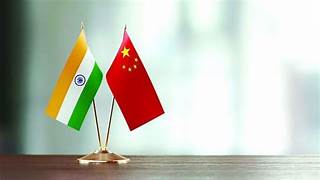
China Calls Tibet-Related Issues a ‘Stumbling Block’ in Ties with India

 :
| Updated On: 14-Jul-2025 @ 10:49 am
:
| Updated On: 14-Jul-2025 @ 10:49 amSHARE
The succession of the Tibetan spiritual leader, the Dalai Lama, has once again emerged as a sensitive flashpoint in China-India relations. The Chinese Embassy in New Delhi described the issue as a “thorn” in bilateral ties, just days before Indian External Affairs Minister S. Jaishankar’s scheduled visit to China for a regional security summit under the Shanghai Cooperation Organisation (SCO).
On Sunday, Chinese Embassy spokesperson Yu Jing posted on X (formerly Twitter) that the Tibet-related issue, referred to by China as “Xizang,” has become a burden on India and continues to hinder mutual relations. The statement comes amid celebrations for the Dalai Lama’s 90th birthday, attended by senior Indian ministers. During the event, the Dalai Lama reiterated that China has no role in choosing his successor, a remark that further angered Beijing.
The Chinese government maintains that the reincarnation and succession of the Dalai Lama must be approved by its authorities, calling it an internal matter of China. In contrast, Tibetan Buddhists believe that the soul of a high-ranking monk, such as the Dalai Lama, is reincarnated after death, with the successor identified through spiritual and traditional practices, free from political influence. The current Dalai Lama has been living in exile in India since 1959 after a failed uprising against Chinese rule in Tibet.
India has long hosted the Tibetan spiritual leader, as well as approximately 70,000 Tibetan refugees and the Tibetan government-in-exile. This arrangement, while humanitarian in nature, is viewed by Beijing as New Delhi harboring separatist elements. Indian strategic experts believe that the Dalai Lama’s presence in India gives New Delhi significant diplomatic leverage over China, especially amid ongoing tensions along the Line of Actual Control (LAC).
In her statement, Yu Jing criticized unnamed members of India’s strategic and academic circles for making “improper remarks” regarding the Dalai Lama’s reincarnation. She insisted that foreign affairs professionals in India should understand the sensitivity of the Tibet (Xizang)-related issue and refrain from interfering in China’s internal matters.
Indian Parliamentary and Minority Affairs Minister Kiren Rijiju, who sat beside the Dalai Lama during his birthday celebration, publicly stated that as a practising Buddhist, he believes only the Dalai Lama and his institution have the authority to decide on the matter of reincarnation. This view aligns with the religious sentiments of the Tibetan community and opposes Beijing’s narrative.
India’s Ministry of External Affairs (MEA) responded to the developments by reiterating on July 4 that the Indian government does not take positions or make statements on matters related to personal beliefs or religious practices.
S. Jaishankar's visit to China on July 15 will be the first high-level diplomatic engagement between the two nations since the fatal 2020 border clashes in the Galwan Valley, which claimed the lives of at least 20 Indian and four Chinese soldiers. The visit is seen as a potential opportunity to stabilize ties, though the Tibet issue and border tensions continue to cast a shadow over bilateral relations.